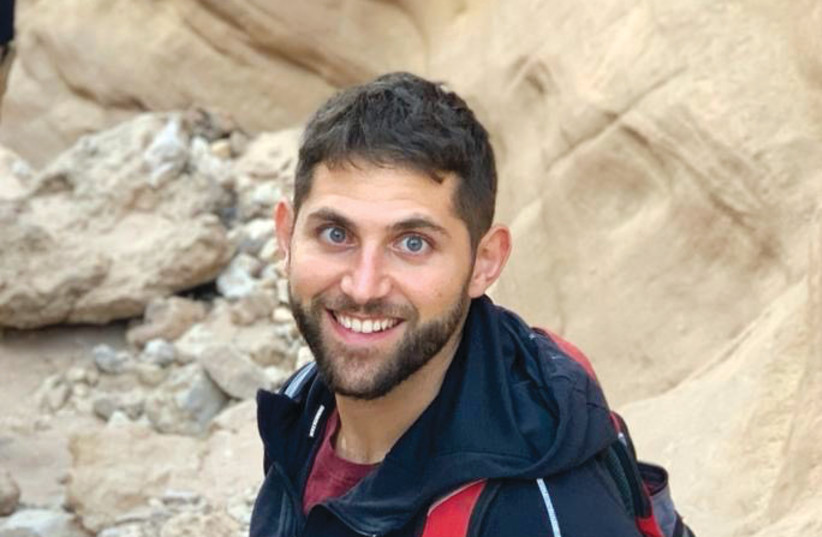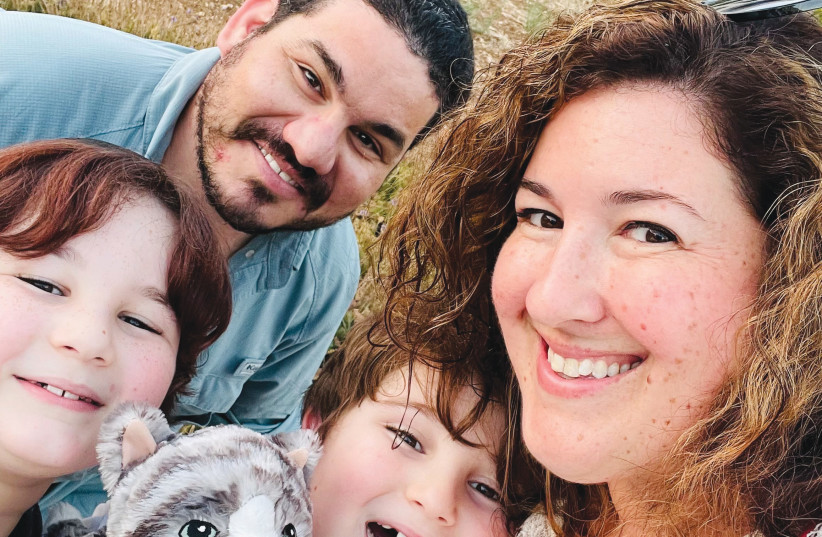Yom Kippur, the holiest day on the Hebrew calendar, is when Jews ask for forgiveness for their sins of the past year. It’s a day reserved for personal reflection and a time when Jews look to make changes in all aspects of their life.
On this somber day, Jews tend to go to synagogue in higher numbers. There are many religious customs and traditions that symbolize the significance of the holy day such as fasting.
For Jews both in Israel and the Diaspora, there are different ways to mark this powerful day. In Israel, the tradition among some secular Jews has long been to bike across the empty streets and highways, taking advantage of the one day a year where cars are all but officially banned.
While people’s levels of observance differ, religious Jews and some secular ones spending much of the day at synagogue immersed (like bread tossed into a body of water in observing the ritual of Tashlich) in penitential prayer as a way of casting off their sins from the last year.
For new American olim who made aliyah with Nefesh B’Nefesh, the holiday is no less significant, and while life in Israel – including religious life – can sometimes seem foreign, the mantle on which Yom Kippur is placed represents a familiar and comforting aspect that allows olim to feel at home in the Jewish state on its most holy of days.
GABBI GOLSHIRAZIAN, 27, grew up in Worcester, Massachusetts to Jewish-Iranian parents who immigrated to the United States following the Islamic Revolution in 1979, and then came to Israel on the MASA program in October 2019, a project founded by the Prime Minister’s Office and The Jewish Agency for Israel. He was already in a relationship with an Israeli woman – now his fiancée – for a couple of years and had been contemplating the idea of making aliyah.

Under the guidance of Nefesh B’Nefesh, Golshirazian enrolled in the MASA internship program to test the waters before committing to the aliyah process. After finishing his program, the first wave of coronavirus had already hit Israel, bringing the entire nation to a screeching halt, and making the decision of whether to make aliyah an easy one. “It felt right… I knew I wanted to stay here,” he told The Jerusalem Post.
Golshirazian settled in central Tel Aviv, but during the pandemic split time between the now-dormant cultural capital of the Jewish state and his fiancée’s parents’ moshav, where he spent quiet days providing an extra pair of hands on the family farm.
For Golshirazian, growing up, Judaism was “more about culture and the traditions than going to synagogue.’’ However, he attended services at the local Chabad affiliate as a youth, and although going to public school, would attend a Hebrew school through the local conservative synagogue a couple days a week.
“We kept kosher at home,” he mentioned, while also noting that “we would drive on Shabbat,” to highlight his secular upbringing built on a strong foundation and connection to Judaism.
When it comes to Yom Kippur, Golshirazian said growing up that he and his family took the holiday very seriously, fasted and would spend the day praying in synagogue for what seemed like “forever.” Despite growing up in a mostly secular environment, the importance and significance of Yom Kippur was instilled in him from an early age, and was something he would carry with him into adulthood and as he began his new life in Israel.
Discussing the importance and meaning of the day, he said: “Yom Kippur has always been about asking for forgiveness for the sins that I’ve performed against God’s wishes. As I grew a bit older and I understood more about the laws and traditions, I expanded my beliefs on this to acknowledge my past year and that I may have done wrong to upset my family, friends or myself, and understand what it may have been and how I can change that for the coming year.”
JENNIFER DURETZ PELED made aliyah with her Israeli husband, Matan, and their twin eight-year-old boys from Wellington, Florida in July. When she spoke with the Post last month, the family was living in a sublet in Haifa, but were considering a move to central Israel.

Duretz Peled grew up surrounded by a strong and secular Jewish community in Cherry Hill, New Jersey, where “everyone was Jewish,” and attended Hebrew school classes three days a week and would spend each summer at a Jewish camp. “Our lives were very Jewish,” as she put it.
In the early 2000s, when on a Birthright Israel trip, the idea to become a cantor was born; she was in the middle of a grad program at the San Francisco Conservatory for Music, studying opera, when another trip attendee suggested the idea because it combined her love and passion for both Judaism and music.
She immediately quit her program and enrolled at the Reconstructionist Rabbinical College outside of Philadelphia to study to become a cantor. She worked in a few different communities, most recently in Wellington for five years right up until she and her family made the move to come to Israel. It was “tough to leave” Wellington, she recalls, where, as cantor of a Reform synagogue, she was an integral part of the community. Telling her synagogue that she was leaving for Israel was really difficult.
“I gave them six months’ notice before leaving,” she said, while adding that they were a “great, sweet, sweet community.”
Not surprisingly, being a cantor adds an extra layer to her Yom Kippur experiences. While special and meaningful, it means that instead of being with her husband – who was a rabbi at the local conservative synagogue – and their kids, she was on the bima leading services. Being a cantor during the High Holy Days “is often exhausting but always rewarding,” she commented. “It’s very special.”
For this Yom Kippur, their first in Israel, things will surely be different for Duretz, Peled and her family. She and her husband are weighing their offers from different Reform/Conservative communities, and aren’t sure “what we will be doing this year,” both “professionally and personally.” This year, as she and her family get adjusted to life in the Holy Land, Yom Kippur offers her a unique opportunity to have quality time with family.
“I need to focus on my kids, my family and myself” this year, she said.
Regardless of where she is or who she’s with this Yom Kippur, she will recite, as she does every year, the Lamentations: “Return us, O God, to Yourself, and let us come back; Renew our days as of old!” And chanting this serves as a “reminder to take a breath. To decide to try and change my current way of thinking,” she said. “Yom Kippur provides me with a sacred space and time to reflect on all that is holy and important in my life.”
JOSH FRIEDMAN made aliyah in late July, just a week before speaking with the Post, from Philadelphia with his wife and three kids – two boys and a girl. He and his family found a home in Ramat Beit Shemesh and so far really enjoy the welcoming community there. He is starting work at Yeshivat Mevaseret in Mevaseret Zion and his wife, a dentist, is opening up her own practice in the Beit Shemesh area.

As a youth, Friedman attended a Jewish day school and “grew up always associated with Orthodoxy, but not always Orthodox observant.” Despite not always being fully observant, he was surrounded by religious friends and always enjoyed the “intellectual pursuit of Torah.” For Friedman, Judaism became “a serious passion” when he came to Israel after high school to study at Yeshivat Sha’alvim, outside of Modi’in. His two years at yeshiva “set me on a path of having passion for Judaism and a connection to the Land of Israel… this is what drew us to come back,” he explained.
Before moving to Israel, Friedman served as a rabbi and a teacher of Judaic studies back in Philadelphia. He and his wife would come and visit Israel every couple of years over the past decade and he noted that each time they left there was a feeling of “guilt and missing.” The couple had long envisioned themselves taking that big step and moving to Israel. The process toward aliyah was one of “constant growth” but the global health pandemic caused by the coronavirus helped make the choice an obvious one.
For Friedman, as he and his family prepare to observe their first Yom Kippur as olim, he wants to instill the traditions of Yom Kippur for his family. Another focus this year is not making the “great mistake of holding onto our mistakes” from the past year, which prevents “the possibility of building ourselves anew,” and this message has extra relevance as he and his family build their new lives in the Jewish state.
“Believing that God is forgiving me for the sins of the past and if I forgive myself… then I can start fresh.”
For Jews everywhere, despite different experiences, traditions and degrees of observance, the enormity and power of Yom Kippur to enable personal reflection and growth is something that connects all Jews, especially for olim starting a new chapter in their lives.
